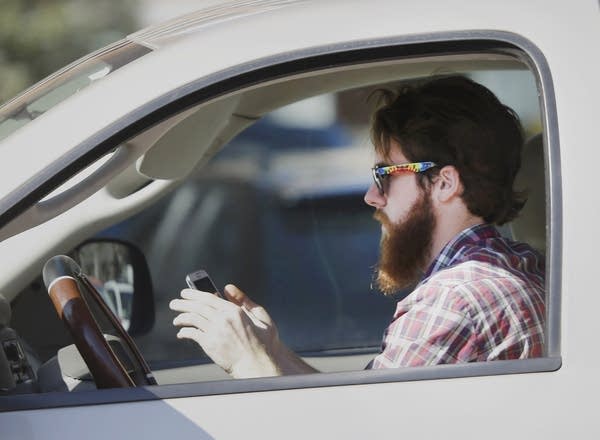Minnesota House passes hands-free cellphone bill

In this Feb. 26, 2013 photo, a man uses his cellphone as he drives through traffic in Dallas. The Minnesota House has passed legislation to ban motorists from using hand-held cellphones while driving.
LM Otero | AP 2013
Go Deeper.
Create an account or log in to save stories.
Like this?
Thanks for liking this story! We have added it to a list of your favorite stories.


